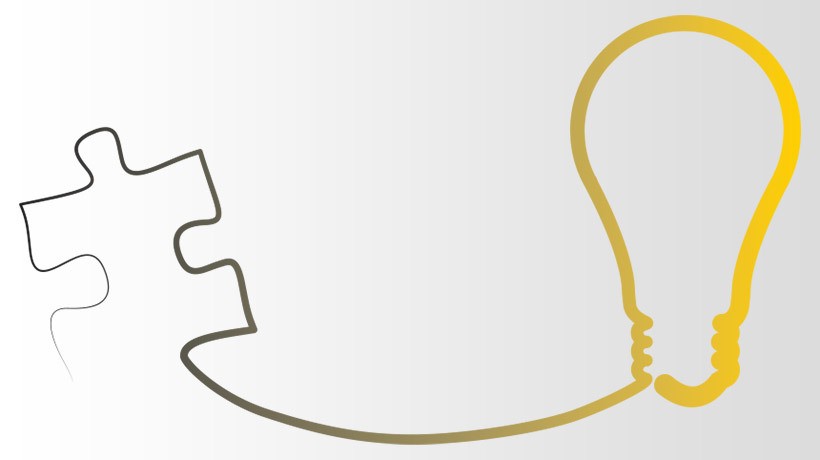What eLearning Professionals Should Know About The Transformative Learning Theory
The Transformative Learning Theory, which was first introduced by Jack Mezirow [1], is based on the principle that personal experience is an integral part of the learning process. It suggests that a learner's interpretation of the experience creates meaning, which leads to a change in the behavior, mindset, and beliefs. When transformational learning occurs, a learner may undergo a "paradigm shift" that directly impacts future experiences. For example, they might discover that they have a hidden talent or that a long-held assumption is inaccurate. This article explores the core principles, dimensions and components of the Transformative Learning Theory, as well as how to apply it in eLearning course design.
Principles Of The Transformative Learning Theory
There are 4 primary principles that eLearning professionals can use to ensure that their eLearning courses provide a transformative eLearning experience:
1. There are two distinct forms of learning that an individual experiences:
- Instrumental
Involves task or problem-based learning. Online learners must identify the cause and effect, as well as the relationship between the concepts. - Communicative
Online learners communicate their wants, needs, and emotions.
2. In order for learning to occur, there must be a change in the learner's perspective. The Transformative Learning Theory also states that a change in the meaning structures must take place.
3. Online learners undergo a change in their meaning structure by reflecting on the eLearning process, content, or underlying ideas.
4. The eLearning process may consist of refining or elaborating on meaning schemes, discovering new schemes, transforming existing schemes, or modifying personal perspective.
Dimensions Of The Transformative Learning Theory
According to the Transformative Learning Theory, there are 3 dimensions involved in "perspective transformation":
1. Psychological
Learners change their perspective or understanding of themselves. Based on the Transformative Learning Theory, for real learning to take place individuals must be able to think autonomously. Rather than allowing society or culture dictate what we think and feel or who we are, we should create our own meanings and interpretations.
2. Convictional
Transformation of the belief system, such as personal values and assumptions. Instead of going along with the status quo, learners shift their cognitions based on their personal experience.
3. Behavioral
Learners alter their lifestyle. For example, they might change some habits based on the information they received. The learning experience transforms their behavior and influences their actions.
Basic Components of The Transformative Learning Theory:
There are 2 essential components to the Transformative Learning Theory that must be present in order for learning to occur:
1. Meaning Structures
According to Mezirow [1], learners assign their own meaning to information, based on their personal cognitions. For example, two people might have completely different interpretations of the same information. Mezirow suggests that there are three codes which form meaning structures:
- Sociolinguistic Codes
The effect that society has on our schemes and structures. Examples of this are societal norms, cultural expectations, and how language is used. - Psychological Codes
Pertains to an individual's emotional and mental state. In other words, their thoughts and feelings directly impact their meaning structures. - Epistemic Codes
Focuses on how knowledge is obtained, its validity, and the conditions surrounding the learning experience. If knowledge does not come from a reliable source, learners are less likely to attach meaning to it.
2. Critical Reflection
Mezirow states that individuals must "engage in critical reflection on their experiences, which in turn leads to a perspective transformation." Learners are only able to create meaning structures if they have the opportunity to reflect on their learning experience. This process of reflection allows them to become more self-aware and understand themselves on a deeper level. As a result, they can understand the information more effectively and get more out of the learning experience.
On the other hand, according to Mezirow "reflection involves a critique of assumptions to determine whether the belief, often acquired through cultural assimilation in childhood, remains functional for us as adults." Individuals must be able to challenge their current assumptions and carefully examine their validity. In some instances, they may discover that these cognitions are rooted in societal or cultural beliefs, rather than their own personal belief system. By critically reflecting, they have the power to critique and alter their assumptions in order to make meaningful change.
How To Apply The Transformative Learning Theory In eLearning
To create transformative eLearning experiences you must facilitate a change in their meaning structures. By offering online learners new problem-solving approaches and ideas, as well as challenging their assumptions, you are enacting a positive change in their mental schemes. The ultimate goal is to trigger a "perspective transformation", which involves transforming an online learner's perception of the world, themselves, or the topic. Give your online learners time to reflect, ask thought-provoking questions, and encourage them to analyze their beliefs in order to gauge their validity. Also, keep in mind that transformations can often occur gradually, especially those that involve a change in perspective.
Use this article to apply the Transformative Learning Theory in your eLearning course design. Though some strategies may involve changes that are more subtle, others may be on a grander scale. Whatever the case may be, it's important to remember that even the smallest change can bring your online learners closer to achieving their goals.
Creating a supportive and motivational eLearning environment is essential for transformational learning? Read the article 7 Tips To Create The Perfect eLearning Conditions to discover how to develop the ideal setting for your eLearning course.
References
- Mezirow, J. (1991). Transformative Dimensions of Adult Learning. San Francisco, CA: Jossey-Bass.









